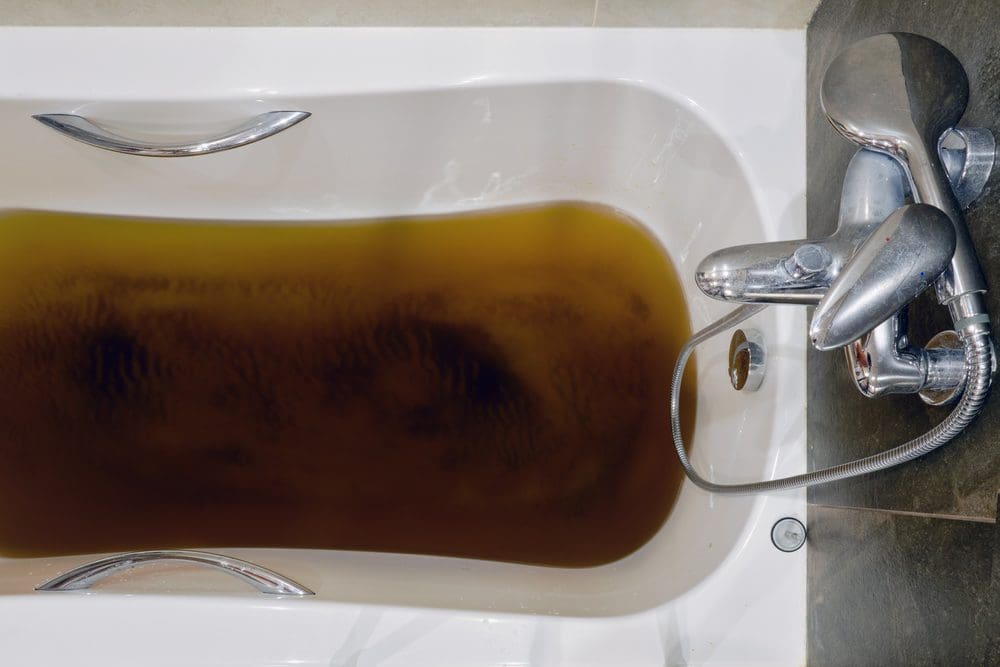Essential Explanations for Effluent in the Bathtub
Essential Explanations for Effluent in the Bathtub
Blog Article
They are making a number of good points relating to Why sewage is coming up through your bathtub as a whole in this post down the page.

Sewer backup in the tub can be a distressing and unhygienic trouble for any kind of home owner. Not only is it troublesome, but it additionally postures severe health threats and suggests underlying concerns with the plumbing system. Understanding why sewage is turning up through the tub is essential for taking appropriate activity to address the trouble successfully.
Intro to the Problem
Understanding the Problem
When sewer starts backing up into the tub, it's a clear indicator of a trouble with the water drainage system. The wastewater that needs to be streaming far from your home is rather locating its way back right into your living space, which can lead to substantial damage and carcinogen.
Prospective Reasons
A number of aspects can contribute to sewer back-up in the tub. From clogs in the sewer line to issues with the plumbing infrastructure, identifying the origin is essential for finding a solution.
Typical Reasons for Sewer Back-up
Clogs in the Sewer Line
Among the most common reasons for sewage back-up is an obstruction in the drain line. This can occur as a result of the build-up of particles, grease, or foreign things in the pipes, stopping proper circulation and triggering sewage to back up into your bathtub.
Tree Root Intrusion
Tree origins seeking dampness and nutrients can penetrate drain lines with small fractures or joints. Over time, these origins can grow and broaden, causing substantial damage to the pipelines and bring about sewage backup problems.
Aging Framework
Older homes might have dated plumbing systems that are much more vulnerable to corrosion, cracks, and degeneration. As pipes age, they become extra vulnerable to leakages and clogs, enhancing the likelihood of sewage back-up incidents.
Heavy Rainfall or Flooding
Throughout durations of heavy rainfall or flooding, the sewer system may come to be overwhelmed with excess water, triggering back-ups and overflows. This can cause sewage backing up into tubs and various other components inside the home.
Wellness Dangers Connected With Sewer Back-up
Contamination of Water
Sewer back-up can pollute the supply of water in your house, presenting a major health risk to you and your family. Direct exposure to infected water can result in intestinal issues, skin infections, and various other ailments.
Spread of Illness
Sewage includes dangerous microorganisms, infections, and bloodsuckers that can cause a series of diseases, including liver disease, cholera, and gastroenteritis. Entering into contact with sewage or polluted surfaces puts you in danger of infection.
Mold Growth
Wetness from sewage back-up can develop suitable problems for mold and mildew development in your house. Mold and mildew spores can aggravate respiratory problems and cause allergic reactions in sensitive individuals, making prompt cleanup essential.
Indications of Sewer Back-up
Foul Odors
Unpleasant smells originating from drains or components, especially in the restroom, might suggest sewer backup concerns. These odors are usually solid and persistent, indicating an issue that calls for instant interest.
Slow Draining Fixtures
Tubs, sinks, and bathrooms that drain pipes slowly or otherwise at all could be experiencing sewage backup. If multiple fixtures are impacted concurrently, it's most likely that the problem originates from an usual factor, such as the major drain line.
Gurgling Noises
Strange gurgling or bubbling sounds originating from drains when water is running in other places in the house are indicative of air trapped in the plumbing system. This air accumulation can arise from sewer back-up and need to be explored without delay.
Immediate Actions to Take
Shutting Off Supply Of Water
In case of sewer back-up, it's vital to switch off the water to stop more contamination and damages. Locate the main water shutoff valve in your home and closed it off up until the problem can be fixed.
Calling a Professional Plumber
Handling sewer backup is not a DIY task. Call a licensed plumber with experience in handling sewage-related concerns to evaluate the scenario and carry out essential fixings or cleanups.
Avoiding Contact with Infected Water
Till the sewer backup is settled, avoid contact with infected water to stop the spread of bacteria and virus. Use safety equipment if you have to remain in the damaged location and wash your hands completely later.
Preventive Measures
Regular Upkeep of Sewer Lines
Schedule regular examinations and upkeep of your sewer lines to recognize and resolve prospective problems prior to they intensify right into major issues. This can consist of cleaning debris, checking for tree root intrusion, and repairing any type of broken pipelines.
Mounting Backwater Shutoffs
Consider installing backwater valves in your plumbing system to stop sewage from flowing back into your home throughout periods of heavy rainfall or flooding. These shutoffs instantly close when water starts backing up, shielding your residential or commercial property from contamination.
Correct Disposal of Family Waste
Stay clear of flushing anything aside from toilet paper and human waste down the toilet to avoid clogs and clogs in the sewage system line. Dispose of oil, oil, and various other house chemicals properly to minimize the risk of plumbing issues.
Tidying up After Sewer Back-up
Sanitation Procedures
Extensively decontaminate and sterilize affected areas after sewage backup to get rid of damaging bacteria and stop mold growth. Use suitable cleaning items and protective equipment to make certain risk-free and efficient cleanup.
Restoration of Influenced Locations
Fix any damages to flooring, wall surfaces, or components caused by sewage back-up. Depending upon the extent of the damage, you might need to change carpeting, drywall, or various other materials to restore your home to its pre-loss problem.
Why Is Water Backing Up in My Bathtub When I Flush My Toilet?
What to do about a sewer line clog
First, don’t bother with plunging. No amount of plunging will dislodge the clog in a sewer line. The clog is too far away. Plungers are for clogs in the toilet itself, not the sewer line. Plus, the most likely causes of a sewer clog are:
Tree roots Flushed toys or feminine products Grease buildup Those items don’t move easily. And in the case of tree roots, the roots need to be cut out of the pipe and the pipe will need to be repaired.
You’ll need a closet auger. A closet auger is a type of plumber’s snake with a protective cover to keep from scratching the delicate porcelain toilet. If the clog is further down, you may need to remove the toilet or use one of your cleanouts to get to the clog.
We also recommend doing a video inspection of the drain to ensure that the cause of the clog has been completely removed. Otherwise, you could have the same problem again in a few days or weeks.
https://mspplumbingheatingair.com/blog/why-is-water-backing-up-in-my-bathtub-when-i-flush-my-toilet

As a devoted reader on Why is There Sewage Coming Up Through the Bathtub, I think sharing that post was smart. In case you enjoyed reading our blog post plz make sure you remember to share it. Kudos for your time. Kindly check our blog back soon.
Call Today
Report this page